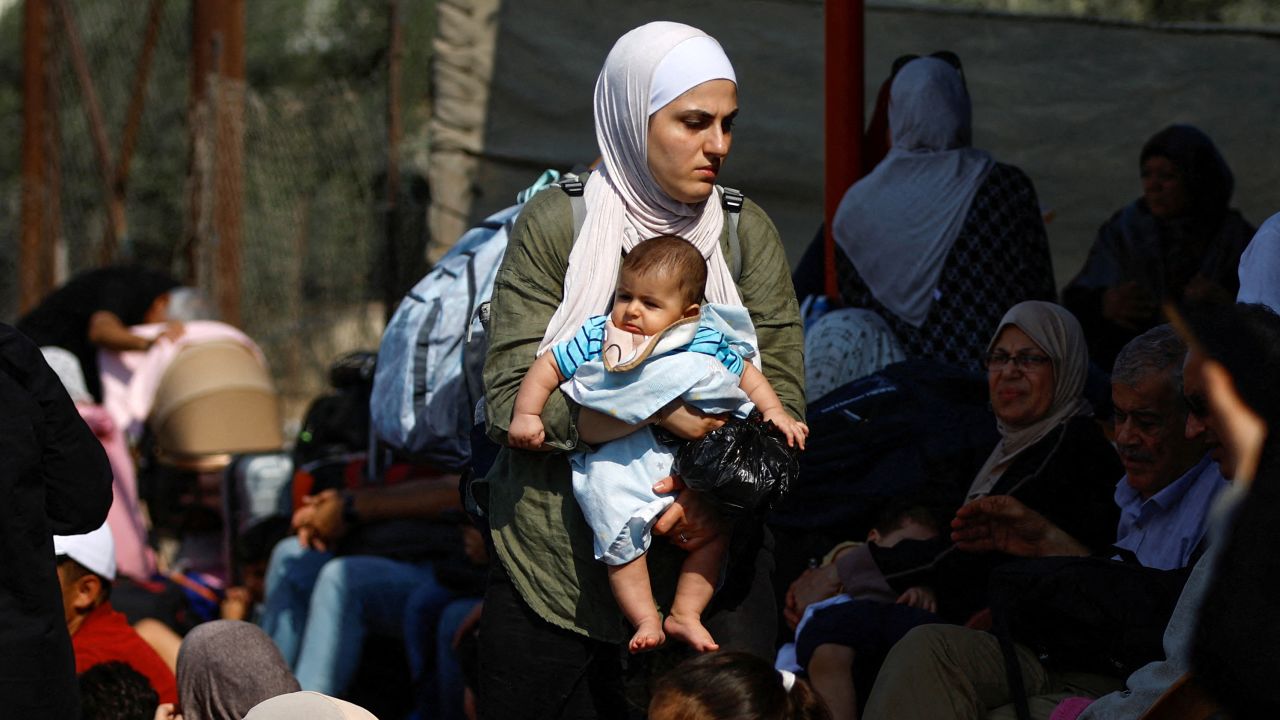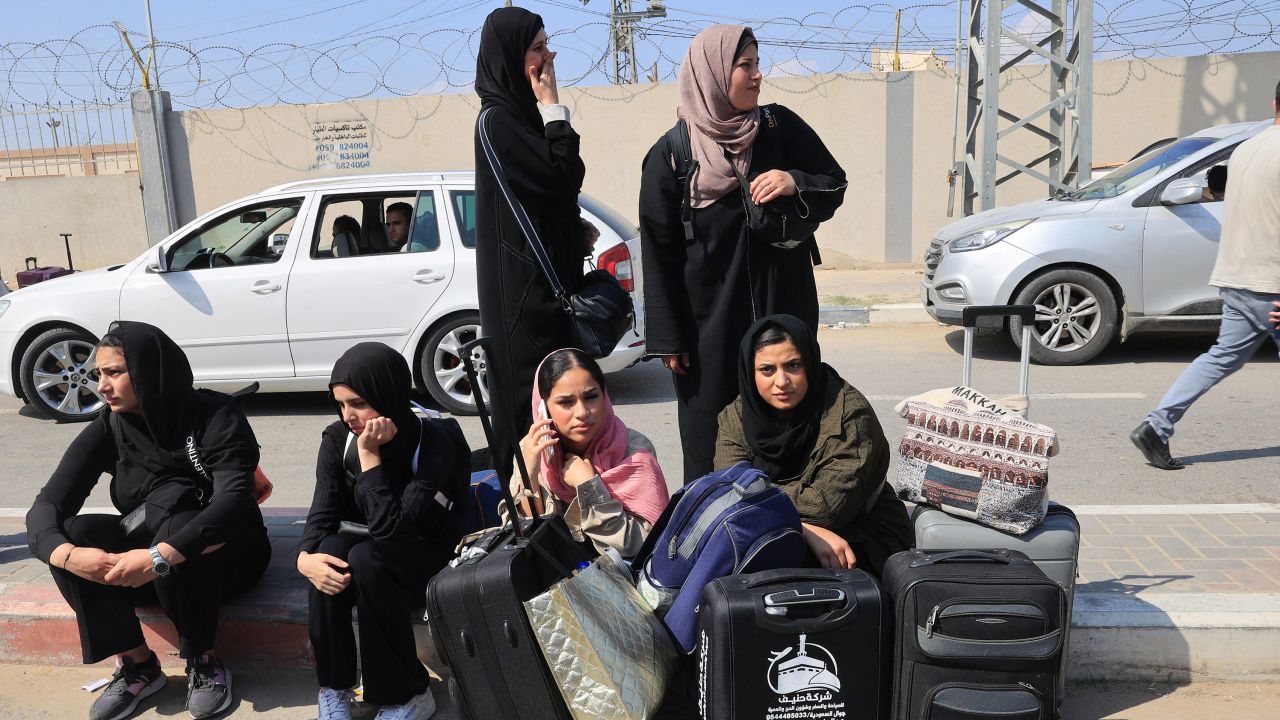
Border crossing ‘is not open’
The Rafah border crossing, which connects Gaza with Egypt and is the only passage not controlled by Israel, could offer a sliver of hope for humanitarian aid eventually entering the territory, as well as for foreign nationals desperate to flee.
But the crossing appeared closed on Saturday when Palestinian-Americans gathered there at the suggestion of the US State Department.
“People are waiting at the Rafah crossing point but it’s not open and there is no clear direction from the embassy,” said Mai Abushaaban, a 22-year-old from Houston who is in contact with her family at the border.
“They told everybody to be here at 12, it’s been two hours almost, nobody showed up, nobody is here to open the gates.” Haneen Okal, a New Jersey resident, waiting with her three children, said.
CNN has reached out to the State Department and the US National Security Council for comment.
Egyptian Foreign Minister Sameh Shoukry on Saturday said foreign nationals would be allowed to cross if protocols were followed on the Gaza side.
He also said Israeli aerial bombardment had rendered roads on the Gaza side of the crossing “inoperable.”
“The Rafah crossing officially is open on the Egyptian side, it has been open all along. The problem with the roads is that it’s been subject to aerial bombardment. Therefore, on the Gaza side the roads are not in a state that can receive the transit of vehicles,” Shoukry told CNN’s Wolf Blitzer.
Egypt has tried to ship humanitarian aid to Gaza but has not received the clearance to do so, he added.
A senior Jordanian official told CNN earlier this week that both countries were awaiting assurance that aid trucks would not be targeted by Israeli airstrikes.
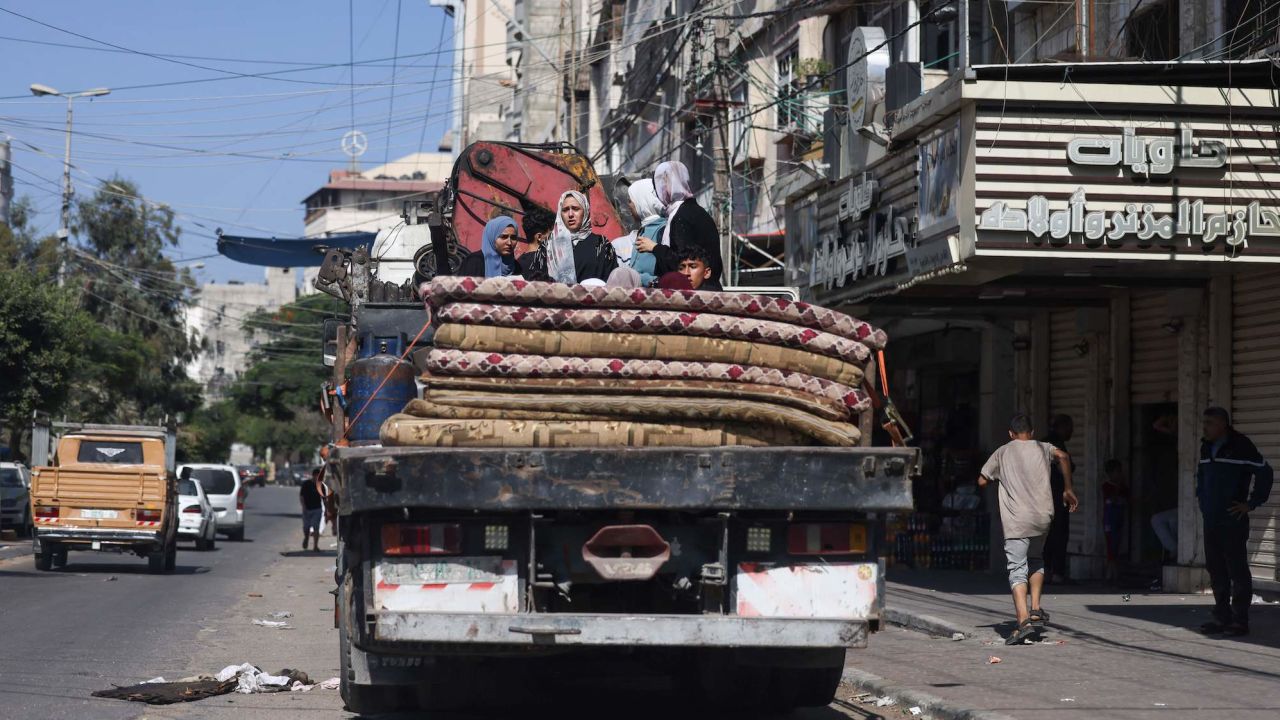
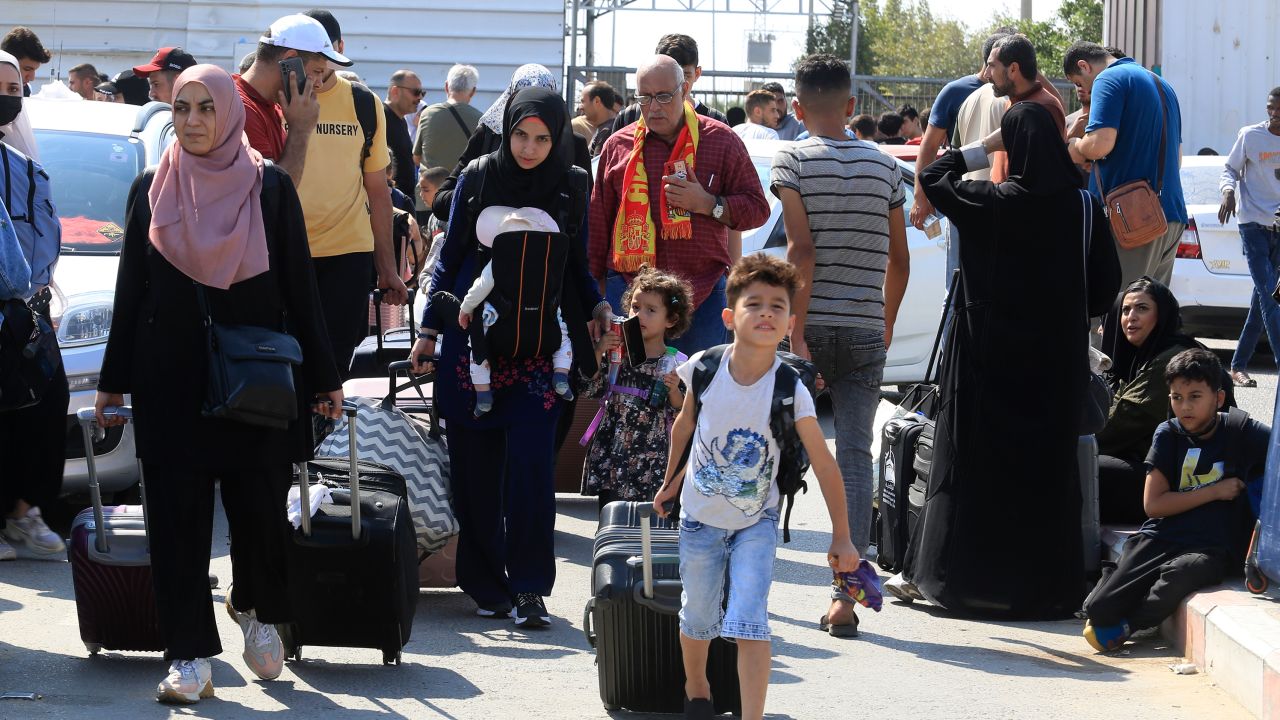
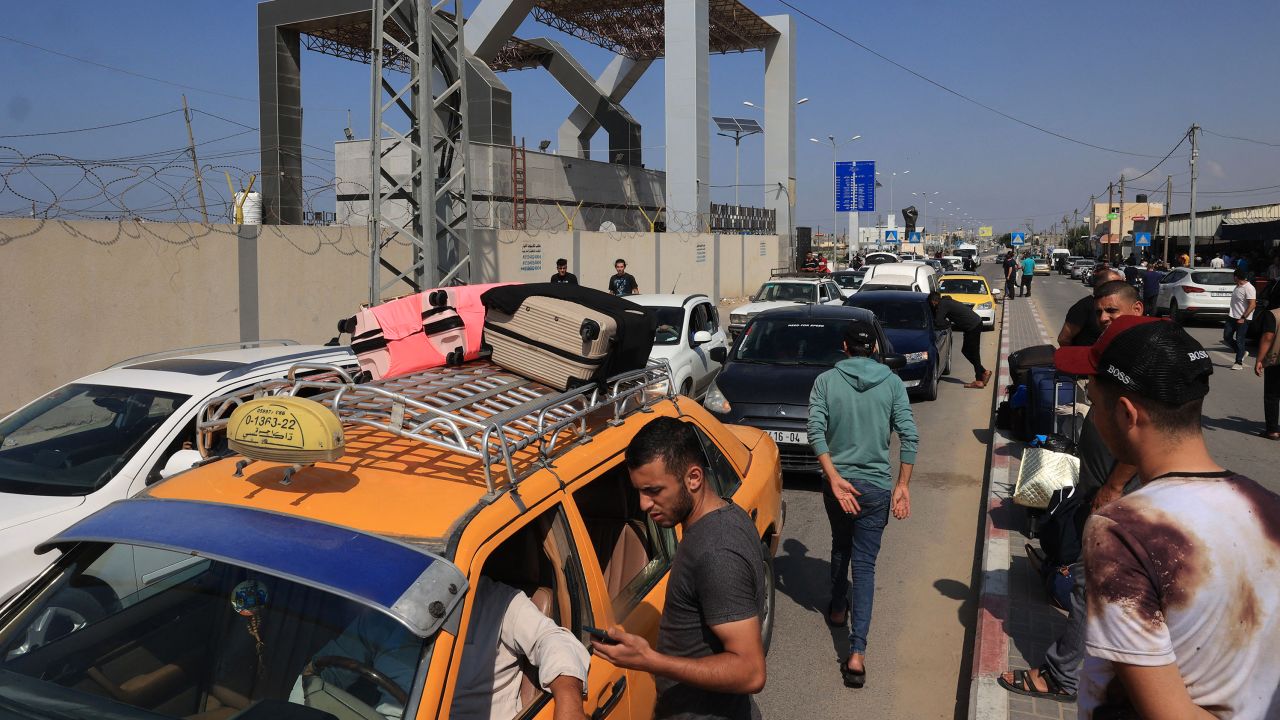
More than 2 million Palestinians – including over a million children – live in the 140-square-mile Gaza Strip, one of the most densely populated places on Earth.
The territory has been under a land, sea and air blockade enforced by Israel since 2007, with more than half its residents living below the poverty line even before the latest conflict.
A week of bloodshed
Saturday morning marked one week since Hamas’ unprecedented and bloody attack on Israel, which killed more than 1,300 people and led to the capture of civilian and military hostages now believed to be held in Gaza.
The surprise attack, widely described as Israel’s 9/11, saw waves of heavily armed Hamas fighters rampage through rural Israeli towns, kibbutzim and army bases.
In response, Israel ordered a “complete siege” of Gaza, including blocking food, water and fuel to the general population, while mounting its heaviest ever airstrikes on the enclave. International observers warn the cutoff will see Gaza civilians die by starvation, disease and lack of medical care for the growing numbers of dying and wounded.
At least 2,215 Palestinians have been killed in Gaza from Israeli strikes, the Palestinian Ministry of Health said in an update Saturday. That toll includes 724 children.
One overwhelmed hospital in Gaza told CNN that it had resorted to using ice cream trucks from local factories as makeshift morgues due to overflowing hospital mortuaries.
Even before the evacuation warning, more than 400,000 Palestinians had already been forced to flee their homes due to airstrikes.
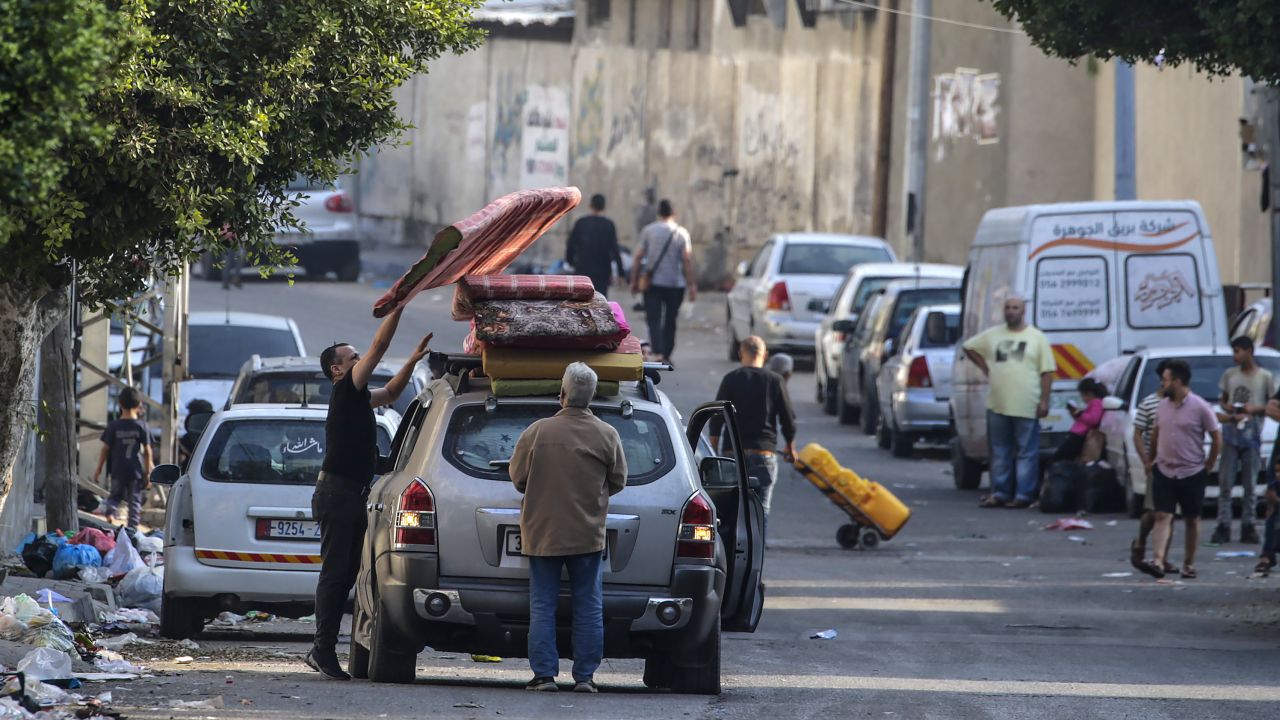
There are fears that the violence could spill over into a regional conflict.
Hostilities erupted on Saturday between Lebanese militant group Hezbollah and IDF forces in the disputed Shebaa farms, near the Israel-Lebanon border. Israel said it returned fire after Hezbollah launched an attack on the territory.
Syria’s military also alleged late Saturday local time that an “air aggression” by Israel had damaged Aleppo International Airport, rendering it non-operational.
Iran has warned of “far-reaching consequences” if Israel does not stop its attacks on Gaza, in a statement released as Iranian Foreign Minister Hossein Amir-Abdollahian met with Hamas political leader Ismail Haniyeh in Qatar.
“If the Israeli apartheid’s war crimes and genocide are not halted immediately, the situation could spiral out of control & ricochet far-reaching consequences,” the Iranian mission to the United Nations said.
The US is taking measures to deter any action by Iran and Iranian proxies in the region like Hezbollah. On Saturday, the Pentagon has ordered a second carrier strike group to the eastern Mediterranean Sea, according to two US officials.
A first carrier strike group, led by the USS Gerald R. Ford, arrived off the coast of Israel earlier this week. It will be joined by the USS Dwight D. Eisenhower strike group.
The Biden administration has emphasized that the carrier, and its accompanying force, are not there to engage in combat activities on behalf of Israel.
CNN’s Hande Atay Alam, Hamdi Alkhshali, Paul Murphy, Sharif Paget, Helen Regan, Caitlin Hu, Mohammed Tawfeeq, Akanksha Sharma, Nadeen Ebrahim, Nada Bashir, Ali Younes, Rhea Mogul, Yahya Abou-Ghazala, Ben Wedeman, Catherine Nicholls, Laura Paddison, Akanksha Sharma, Tim Lister, Hadas Gold and Jessie Gretener contributed to this report.













